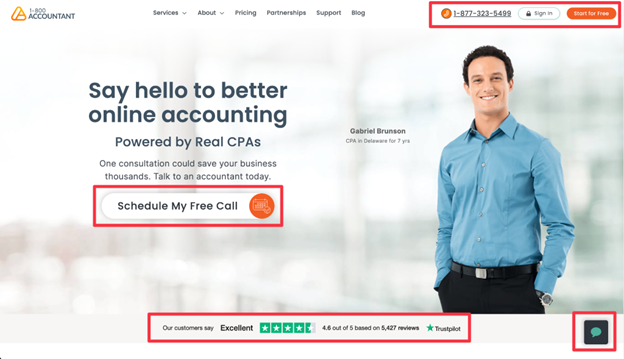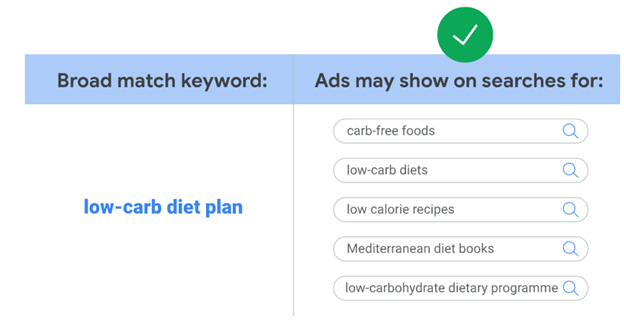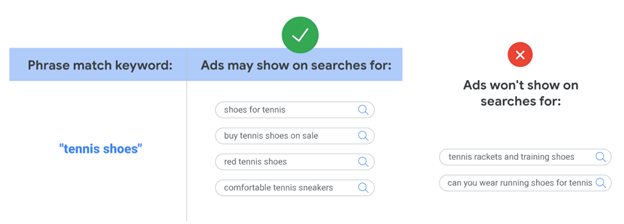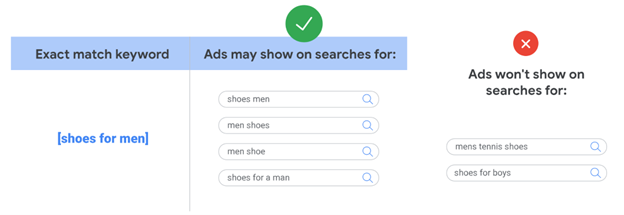All tax & accounting firms could benefit from crafting a successful digital marketing strategy, but there are a lot of factors to consider before doing so
Now more than ever, to grow as a business, you need to grow your digital presence — and simply having a website isn’t enough. However, there are a number of strategies and methods to elevate a digital marketing effort for your tax & accounting business.
The parts of this strategy do not need to be mastered, but when you’re implementing them, you need to have a clear goal in mind. Indeed, this is where a lot of digital marketing campaigns fall down — most professionals understand they need clients to arrive on their website, so they focus on driving people to their website. But are these the right people? Do you have the right services to offer? Are you able to get those viewing the website to take action?
None of these methods should be new to you, but as we cover each of the topics, we need to take a step back and ask ourselves. What is the goal of this?
First, let’s start with your website.
Goal-driven website design
When accountants approach their digital marketing strategy, you’d be amazed at how their whole digital marketing plan is just having a website. And when you look at the website, there’s clearly no goal in mind.
So, be honest with yourself. Is your current website a type of brochure that offers little value, other than basic information and your contact info buried at the bottom of your website? If you answered no to that, well done, you’re in the minority.
Most professionals, however, will answer that they want people to get in touch if they’re interested in their services. And while that is a perfectly fine goal and a good starting point, it may not be specific enough. More importantly, those websites are really built or designed to drive those kinds of inquiries.
Having clear Calls to Action (CTAs) throughout your pages is vital to success. The content and design of your website needs to flow to help your visitors qualify themselves and become more comfortable with your services. That way, you’ll not be wasting time on leads that aren’t a good fit.
And while having a visually pleasing website is a great start, it is the content that really needs to guide your potential customer through their journey.

You can see from the above example, this website has three CTAs and positive customer reviews visible near the top, which will allow the business to build trust.
Content & content marketing
The content that is on your website does a few things. First, it should educate your visitors on what your business offers, who it’s for, and how they can take the next steps. The same thing goes for your blog content — it should support your main services, and explain (again, through a CTA) how potential customers can take the next steps.
A lot of accounting firms will have a generic our services page that just lists all the services the firm offers. However, approaching this in a different way will not only educates your visitors, but will allow your website to do better in listings on search engines.
Posting regular content, such as blog posts, on your websites can offer massive reach, but only when truly utilized in the best way. If you’re writing blog posts that just live on your blog and offer nothing more than that, then you’re leaving a lot on the table.
You should be creating blog posts that educate and help our visitors make decisions by creating content that targets our ideal customers at different stages in the buying process. Not only are you then giving yourself a better chance to get them within your ecosystem, but you can also use this to build your other marketing channels.
Blog content that attracts visitors will allow you to build your email list, and also allow you to create social media posts and provide content to share with new subscribers. In fact, the content you create can be repurposed across all channels, so a blog post can be an email, can be three separate LinkedIn posts, or three Facebook posts, etc. Always think about ways to maximize your efforts.
Pay-per-click advertising
Pay-per-click (PPC) for accountants is a dangerous game if you don’t have a good understanding of the process, leaving you to pay a high cost per click. While a complex subject, PPC is basically an internet advertising model, in which an advertiser pays a publisher when the ad is clicked. Yet, without thinking about how you’re going to turn site visitors into customers, you risk wasting money up front.
Depending on your position, you are usually better off starting small with PPC and then ramping it up when you have a more tested setup in place. Before starting any marketing effort, however, you need to understand whom you’re targeting, for what they may be searching, and whether you are a good solution to their problems.
You need to understand how to best target your potential customers, especially when you’re picking your keywords in your ads or content. In considering the type of customer-targeting you’re seeking, you have three options: broad, phrase, and exact match.
-
-
- Broad — This will target your keyword and show anything that search engines think is relevant enough.
- “Phrase” — This is where you will target your keyword, and other variations of your keyword — such as if you use “shoes”, it might show your ad with sneakers.
- [Exact] — This will only show your ad for the exact search phrase you’re searching for.
-
Broad

Source: Google.com
“Phrase”

Source: Google.com
[Exact]

Source: Google.com
Using the pictures above as an example, you can quickly see how it would be quite easy to target a very broad audience and blow through your budget. As a good starting point, you should go after exact match initially and send traffic to specific landing pages (where the content is created around the terms and audience). This way you can be sure you’re not wasting budget.
A quick note, Google will lure you into changing the targeting to broad by telling you that your optimization score is lower due to your targeting, however, resist changing this until you really know what you’re doing.
Email and social media marketing
Email marketing is something that is very underutilized by many accounting firms. Your business model is built around reporting dates, yet so few companies are following up with their leads around these dates through information content. Yet, with a time-sensitive industry such as accounting, you’re leaving money on the table if you’re not following up with your potential clients near the deadline time. You’ll want to make sure to have the systems in place from other channels to ensure you’re extracting the most value possible.
For example, you want to make sure that your web design is on point to either have the prospect get in contact with you, subscribe to your email list, or follow your social media. Not every visitor will take action on your website, but you want to maximize the opportunities for contact.
If a potential client follows your social media posts or subscribes to your email list, you can now contact them again. In fact, very few will go to your website, call and sign up as a client right away. You need to keep up regular communications through various channels to really maximize your digital marketing strategy.
To be sure, the world is going more digital and more online; and that offers a big opportunity for growth for those accounting firms that want to expand their digital marketing efforts to attract new clients.







